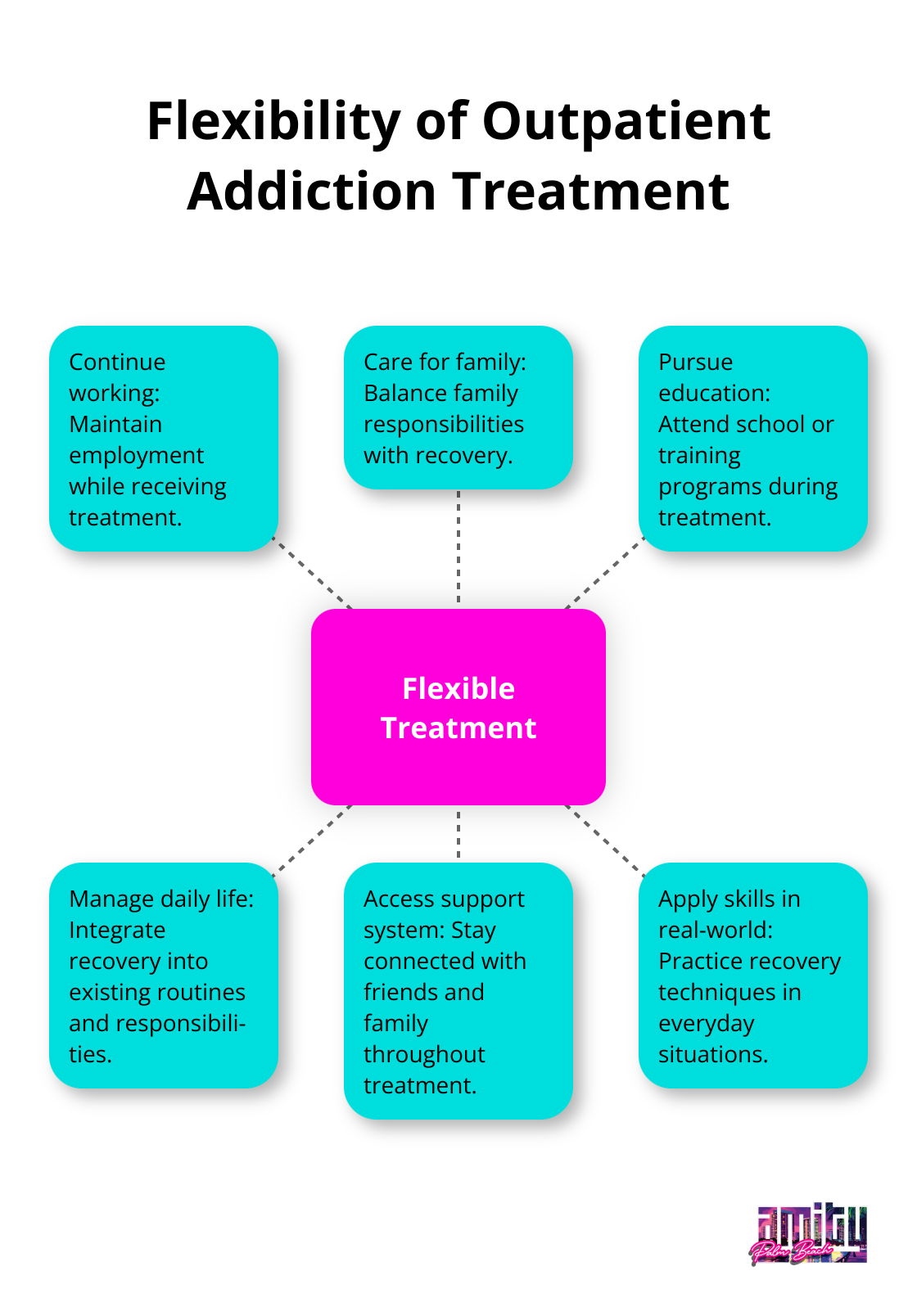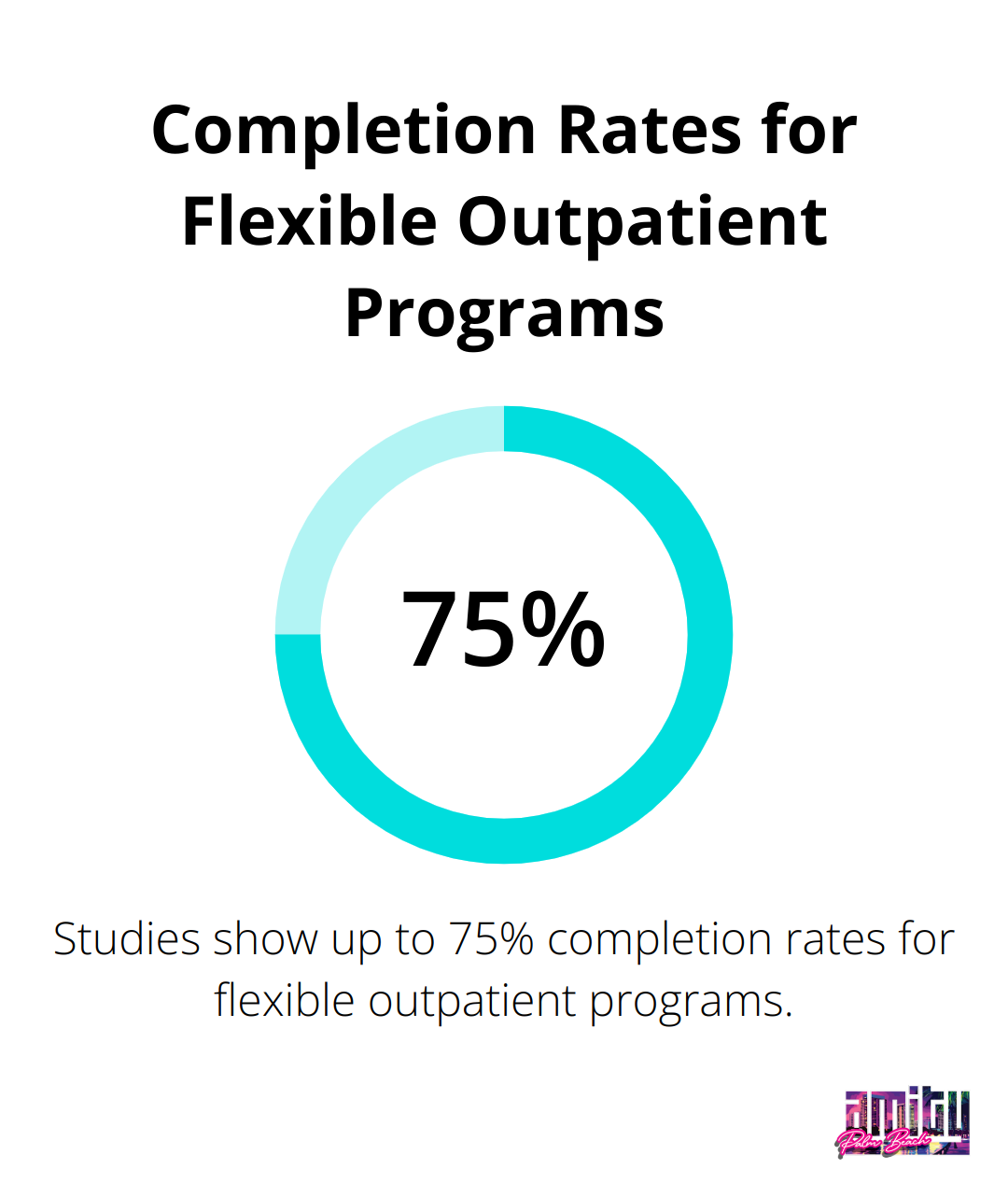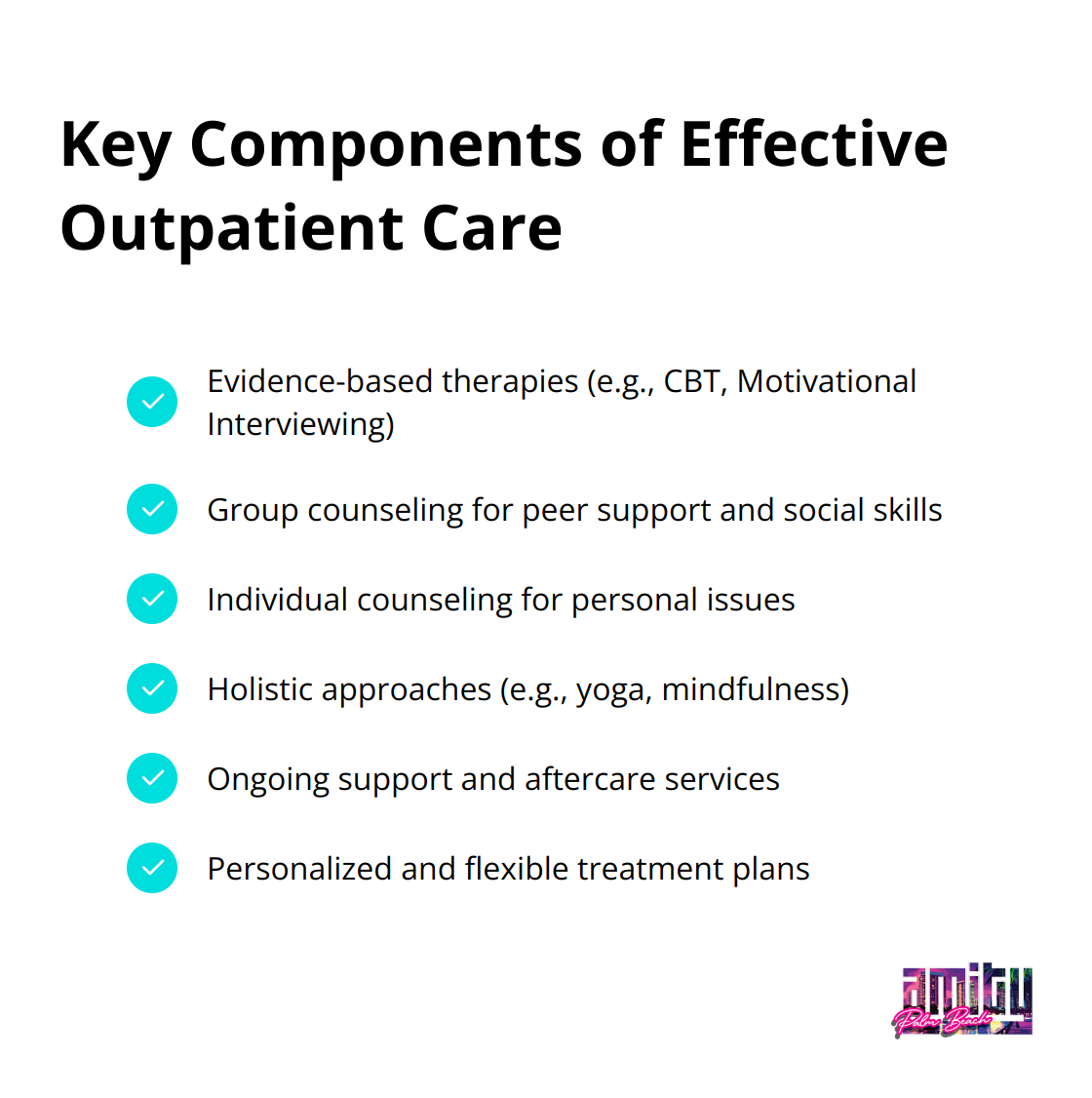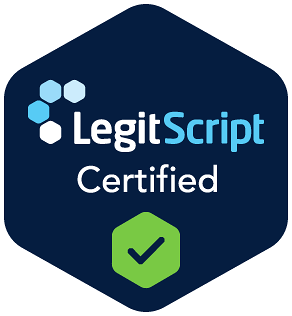At Amity Palm Beach, we understand the importance of flexible recovery options for those battling addiction.
Outpatient addiction treatment in Boynton Beach offers a lifeline for individuals seeking help while maintaining their daily responsibilities. This approach allows patients to receive professional care without disrupting their work or family commitments.
We’re committed to providing personalized, evidence-based programs that cater to each person’s unique needs and circumstances.
What is Outpatient Addiction Treatment?
Types of Outpatient Programs
Outpatient addiction treatment provides a flexible approach to recovery. It allows individuals to receive professional care while maintaining their daily responsibilities. Several levels of outpatient care exist in Boynton Beach. Intensive Outpatient Programs (IOPs) typically involve day/night treatment for addiction recovery. Standard outpatient care may require fewer hours. Some facilities also offer Partial Hospitalization Programs (PHPs), which provide a higher level of care without full-time residency.
The Benefits of Flexibility
One of the most significant advantages of outpatient addiction treatment is its flexibility. Clients can continue working, attending school, or caring for family while receiving treatment. This integration of recovery into daily life can improve long-term success. The Substance Abuse and Mental Health Services Administration reports that maintaining connections with support systems during treatment significantly improves outcomes.
Who Thrives in Outpatient Care?
Outpatient addiction treatment suits individuals with a stable home environment and strong support system. Those with milder substance use disorders or who have completed inpatient treatment often find outpatient care to be an effective next step. However, outpatient treatment isn’t for everyone. Individuals with severe addiction or unstable living situations may require more intensive care.

Personalized Assessment and Care
A thorough assessment determines the most appropriate level of care for each client. The goal is to provide personalized treatment that addresses individual needs and circumstances (ensuring the best possible chance for lasting recovery). This assessment considers factors such as:
- Severity of addiction
- Co-occurring mental health conditions
- Previous treatment history
- Support system availability
Integration with Daily Life
Outpatient treatment allows individuals to practice recovery skills in real-world situations. This immediate application of learned techniques can strengthen coping mechanisms and increase the likelihood of long-term sobriety. Clients can address challenges as they arise, with the support of their treatment team and peers.
As we explore the flexible treatment options available in Boynton Beach, it’s important to understand how these programs can be customized to fit individual needs and lifestyles.
Tailoring Treatment to Your Life in Boynton Beach
Diverse Program Options
Boynton Beach offers a range of outpatient addiction treatment options to suit various needs and schedules. These include standard outpatient programs, intensive outpatient programs (IOPs), and partial hospitalization programs (PHPs). Each level of care provides different intensities of treatment, allowing you to choose the option that best aligns with your recovery goals and daily responsibilities.
For instance, an IOP typically involves 9-12 hours of treatment per week, spread across 3-4 days. This structure allows you to receive comprehensive care while still having time for work, school, or family obligations.

The National Institute on Drug Abuse reports that this flexibility can significantly improve treatment retention rates (with some studies showing up to 75% completion rates for flexible outpatient programs).
Personalized Treatment Plans
No two journeys to recovery are identical. That’s why treatment centers create individualized plans for each client. These plans take into account your specific substance use history, mental health needs, personal goals, and lifestyle factors.
A team of experienced clinicians uses evidence-based assessments to determine the most effective therapies and interventions for your situation. This might include cognitive-behavioral therapy, motivational interviewing, or trauma-informed care. Many programs also integrate holistic approaches like mindfulness training and nutritional counseling to support your overall well-being.
Balancing Recovery and Real Life
One of the key advantages of outpatient addiction treatment is the ability to practice recovery skills in real-world settings. This immediate application of learned techniques can strengthen your ability to navigate triggers and challenges in your daily life.
Many centers offer evening and weekend sessions to accommodate work schedules, and telehealth options provide additional flexibility for those with transportation limitations or health concerns. Some clients find that attending treatment during lunch breaks or after work hours allows them to maintain their professional lives without compromising their recovery efforts.
Family Involvement
Family involvement is another important aspect of many outpatient programs. Treatment centers often offer family therapy sessions and education programs to help your loved ones understand addiction and learn how to support your recovery journey effectively.
Transition to Independent Living
The flexibility of outpatient programs in Boynton Beach allows you to integrate recovery into your life, rather than putting your life on hold. This approach can lead to more sustainable long-term outcomes and a smoother transition to independent sober living.
As we explore the key components of effective outpatient care, it’s important to understand how these elements work together to support your recovery journey.
What Makes Outpatient Care Effective?
Evidence-Based Therapies
The foundation of successful outpatient programs rests on evidence-based therapies. These treatments have scientific proof of their effectiveness in treating addiction. Cognitive Behavioral Therapy (CBT) helps clients identify and change negative thought patterns and behaviors. Recent research shows that combining Motivational Interviewing (MI) and CBT in group settings significantly increases the likelihood of abstaining without lapses through 6 months.
The Power of Group and Individual Counseling
Group and individual counseling play vital roles in outpatient addiction treatment. Group sessions provide peer support and the chance to learn from others’ experiences. They also help clients develop social skills and reduce isolation. Individual counseling allows for deeper exploration of personal issues and the development of personalized coping strategies.
Research in the Journal of Substance Abuse Treatment found that a combination of group and individual therapy sessions led to better outcomes than either approach alone. This synergy often results in significant progress for clients engaged in both types of counseling.
Holistic Approaches to Recovery
Recovery involves more than abstaining from substances; it requires building a fulfilling, balanced life. Holistic approaches support this goal. Current findings increasingly support yoga and mindfulness as promising complementary therapies for treating and preventing addictive behaviors.
These holistic methods address physical, emotional, and spiritual well-being, increasing the chances of long-term recovery. They provide additional tools for managing stress and improving overall quality of life during the recovery process.
Ongoing Support and Aftercare
Recovery continues long after formal treatment ends. Aftercare and ongoing support services play a critical role in maintaining sobriety. These services might include alumni groups, regular check-ins with counselors, or connections to community support groups.
The Substance Abuse and Mental Health Services Administration reports that individuals who participate in aftercare programs have significantly lower relapse rates. Emphasizing the importance of ongoing support helps clients build a strong foundation for lasting recovery.

Flexibility and Personalization
Effective outpatient addiction treatment adapts to the individual needs of each client. This flexibility allows for adjustments in treatment intensity, scheduling, and focus areas as a person progresses through recovery. Personalized treatment plans (taking into account work schedules, family responsibilities, and personal goals) increase the likelihood of successful outcomes.
Final Thoughts
Outpatient addiction treatment in Boynton Beach provides a flexible path to recovery for individuals with substance use disorders. This approach allows clients to receive professional care while maintaining their daily responsibilities and support systems. The integration of recovery skills into real-life situations enhances long-term success rates.
Personalized outpatient programs address the multifaceted nature of addiction through evidence-based therapies and holistic approaches. The combination of individual counseling, group therapy, and ongoing support services creates a comprehensive framework for lasting recovery. Various levels of care (from standard outpatient to intensive outpatient and partial hospitalization programs) allow clients to choose the support that best fits their recovery needs and life commitments.
If you or a loved one struggles with addiction, we encourage you to explore the outpatient addiction treatment options available in Boynton Beach. At Amity Palm Beach, we offer personalized, evidence-based programs designed to support your journey to recovery. Our team of experienced professionals provides compassionate care in a safe and supportive environment.




